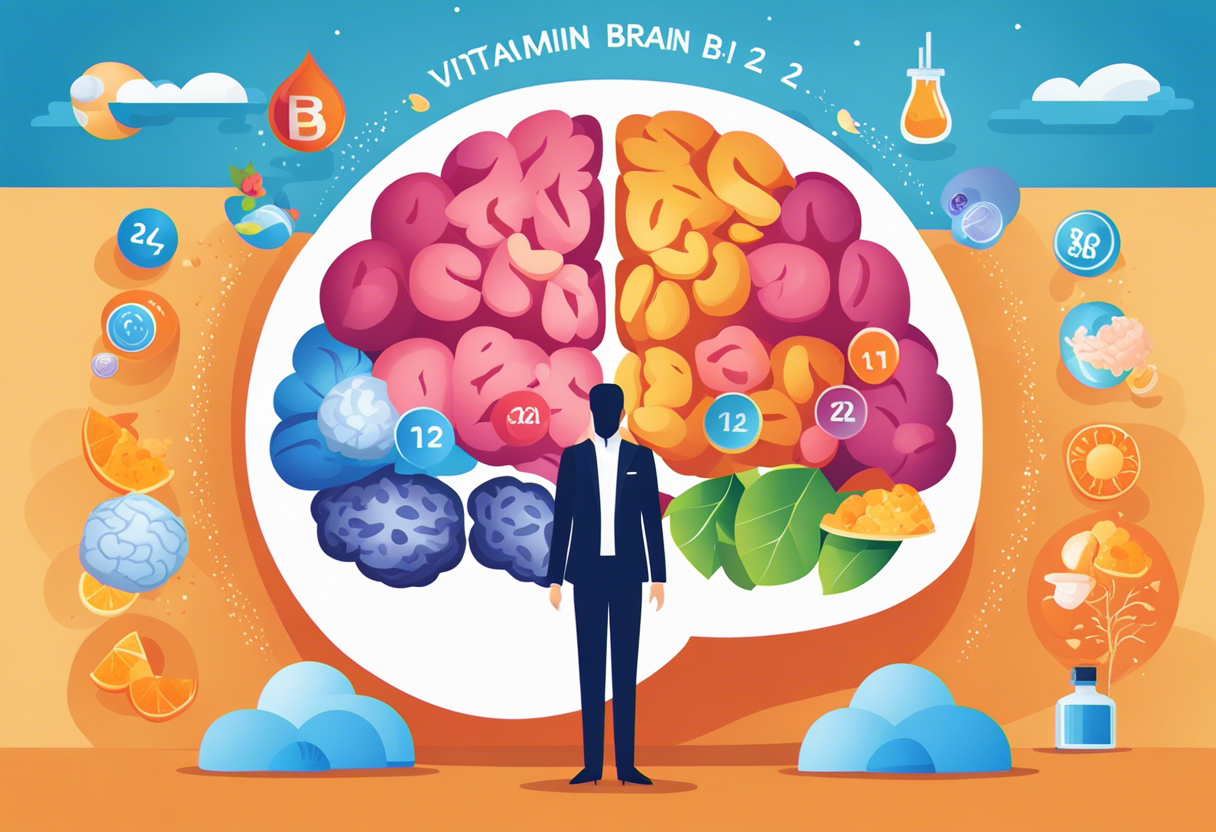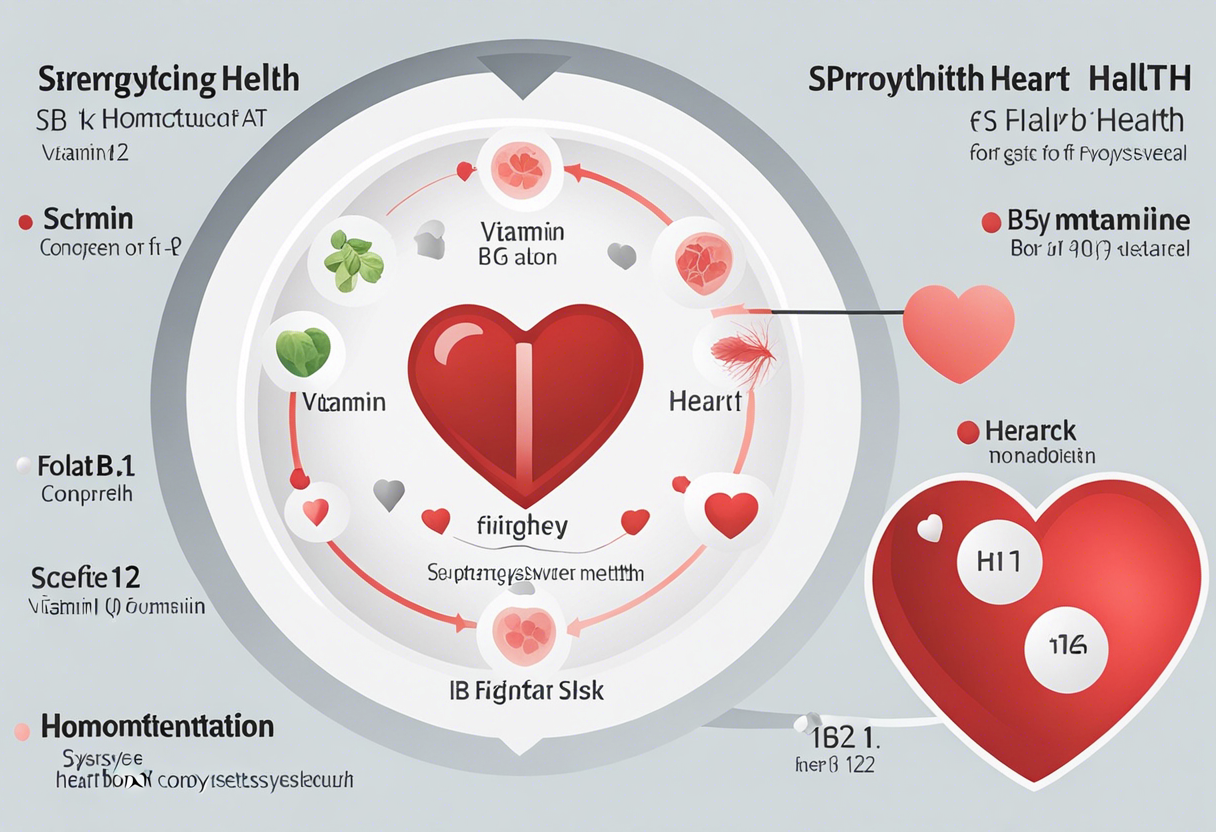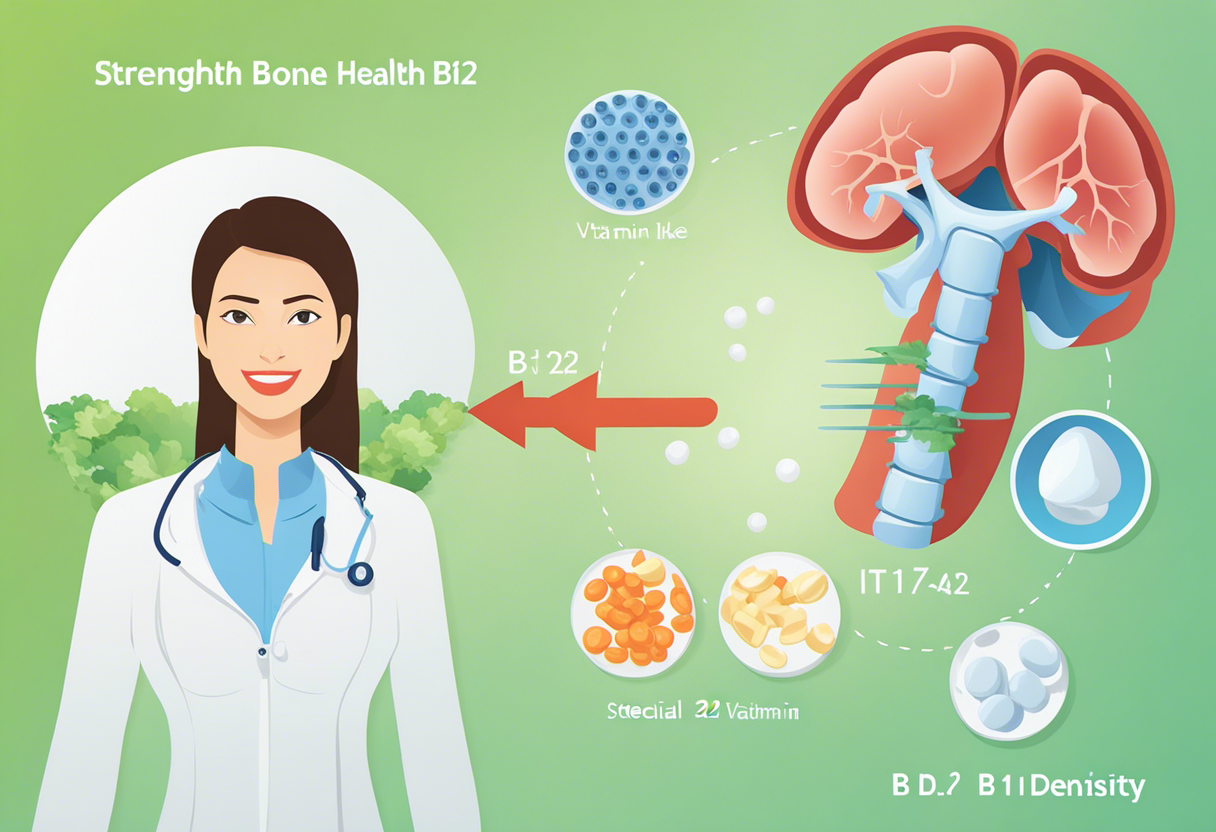Master the Benefits: Top 5 Ways Vitamin B12 Boosts Your Health
Welcome to the first angle of understanding the multifaceted benefits of vitamin B12. This invaluable nutrient plays a crucial role in producing red blood cells and maintaining the nervous system's health, but perhaps most importantly, it's necessary for transforming the food you eat into energy your body can use. B12 deficiency can lead to anemia - a condition that can make you feel chronically tired and weak.
By ensuring your B12 intake is at an optimal level, you can enjoy a regular fountain of energy. It's widely available in animal-based foods like beef liver, fish, and poultry, or through supplements and fortified foods for those who follow a vegetarian or vegan diet. Understanding your dietary intake is the first step towards optimizing your health and harnessing the positive impact of this important vitamin.
Boosting Brain Health

Slide two takes us deeper into the cognitive realm. Vitamin B12 has a significant impact on your brain's functioning and could potentially reduce the risk of neurodegenerative diseases. An extended B12 deficiency can lead to noticeable neurological and psychiatric symptoms - from confusion and depression to tingling hands and feet.
B12 aids in the production of a group of lipids known as sphingolipids, which are integral to the healthy functioning of your brain. A diet rich in B12 can help keep your mind sharp and potentially counteract cognitive decline as you age.
Strengthening Heart Health

As we venture into the sphere of cardiovascular benefits in slide three, it's worth noting that vitamin B12 couples with another B vitamin, folate, to control the level of homocysteine in the blood. High levels of homocysteine are associated with a heightened risk of heart disease.
While research is ongoing, multiple studies indicate that maintaining sufficient B12 levels may help protect against heart disease by keeping homocysteine levels under control. Daily supplementation can be a proactive step towards heart health, especially for individuals at risk of deficiency, like older adults and vegetarians.
Supporting Healthy Hair, Skin, and Nails

In slide four, we delve into the marvels of B12's role in cell reproduction. Vitamin B12 is increasingly attributed to healthy skin, hair, and nails due to its role in cell reproduction. It contributes to the production of melanin, which affects hair, skin, and eye color.
A deficiency in B12 can lead to hyperpigmentation, nail discoloration, hair changes, and even vitiligo. It can also cause dermatological symptoms like hyperpigmentation, angular stomatitis, and hair changes. On the other hand, an adequate level of vitamin B12 can support a clear complexion, reduced hair breakage, and strong nails.
Strengthening Bone Health

Finally, slide five brings forth the discussion on bone health. According to some studies, a lower than average level of Vitamin B12 is associated with poor bone health and osteoporosis, particularly in women.
Vitamin B12 helps your body absorb the calcium it needs to keep bones strong. A deficiency in this vital nutrient can reduce bone mineral density, making bones fragile and susceptible to fractures. Regular intake of B12, therefore, can be an essential part of maintaining robust and healthy bones, especially as you age.